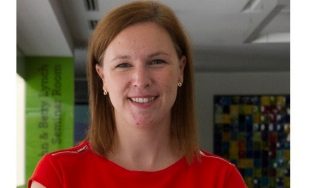
Dr Sophie Andrews, member of the UNSW Ageing Futures Institute and Research Fellow at the Neuroscience Research of Australia, has been awarded an ARC Discovery Early Career Researcher Award (DECRA) of $437,623 to explore the role automatic habits play in maintaining physical activity levels in older people. The DECRA scheme provides support to early career researchers and received a total of 1,173 applications in 2021.
Dr Andrews’ work aims to develop a neuropsychological model of habit formation and change in ageing and generate new knowledge in automatic habits and behaviour change. The findings will provide a foundation to inform future habit-based behaviour change interventions to support older people to age well and improve quality of life.
New evidence suggests that to maintain physical activity, automatic and context dependent habits are important. Investigating the automated habits of older Australians could identify ways to help people increase their regular physical activity.
With funding from a 2019 UNSW Ageing Futures Institute Seed Grant Award, Dr Andrews found that older Australians who engaged in higher levels of planned moderate to vigorous exercise reported their activity to be more automatic than those reporting lower levels of activity.
Professor Kaarin Anstey, Institute Director, believes this is an important area of research that can significantly impact how we age.
“Regular physical activity has many benefits for older people, not only by physically decreasing the risk of heart disease and stroke, but also psychologically by lowering stress and reducing the risk of developing dementia. We are very excited of the potential impact of Sophie’s research and how this will translate to effective interventions to support individuals and society to age well.”
